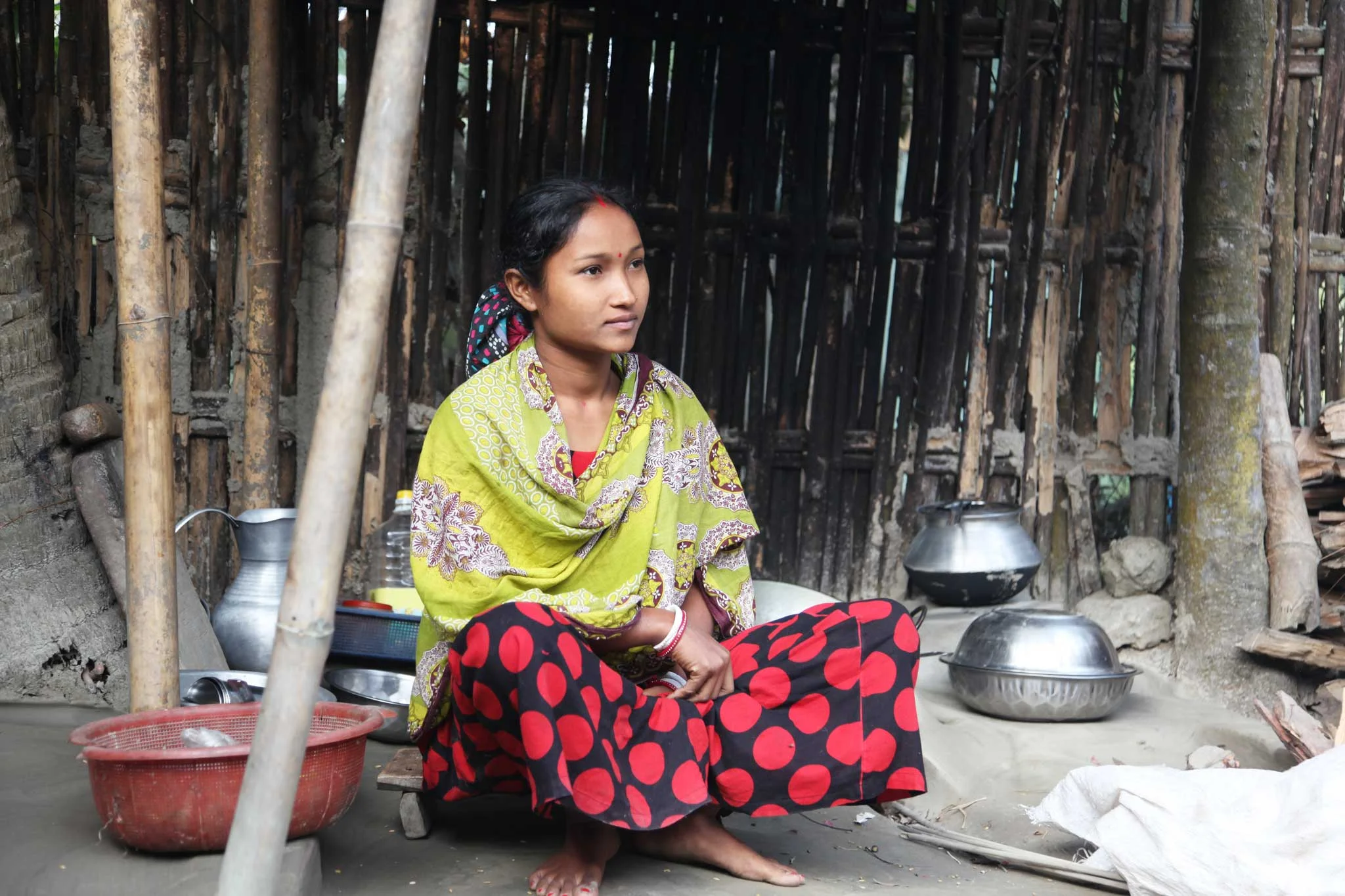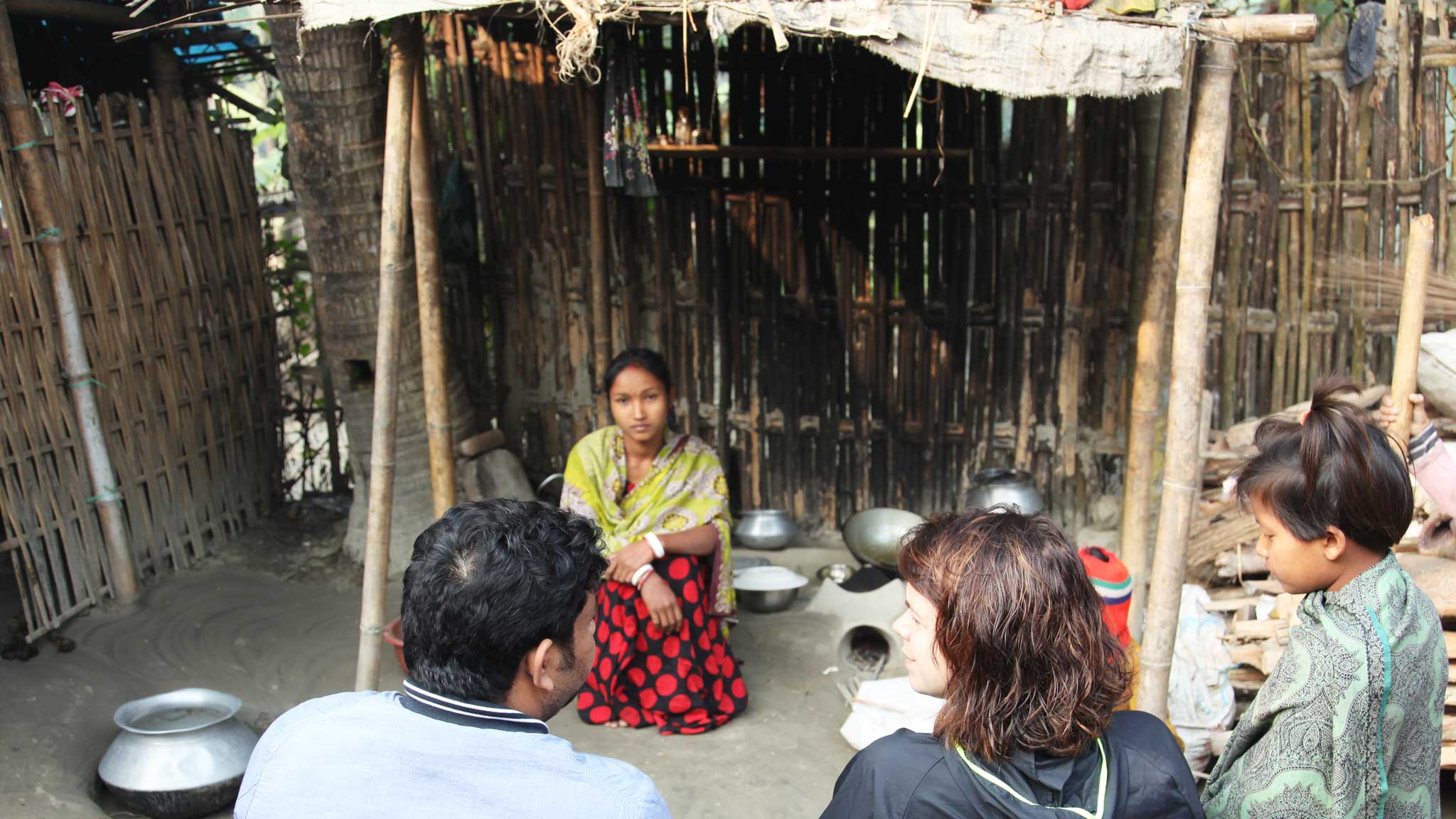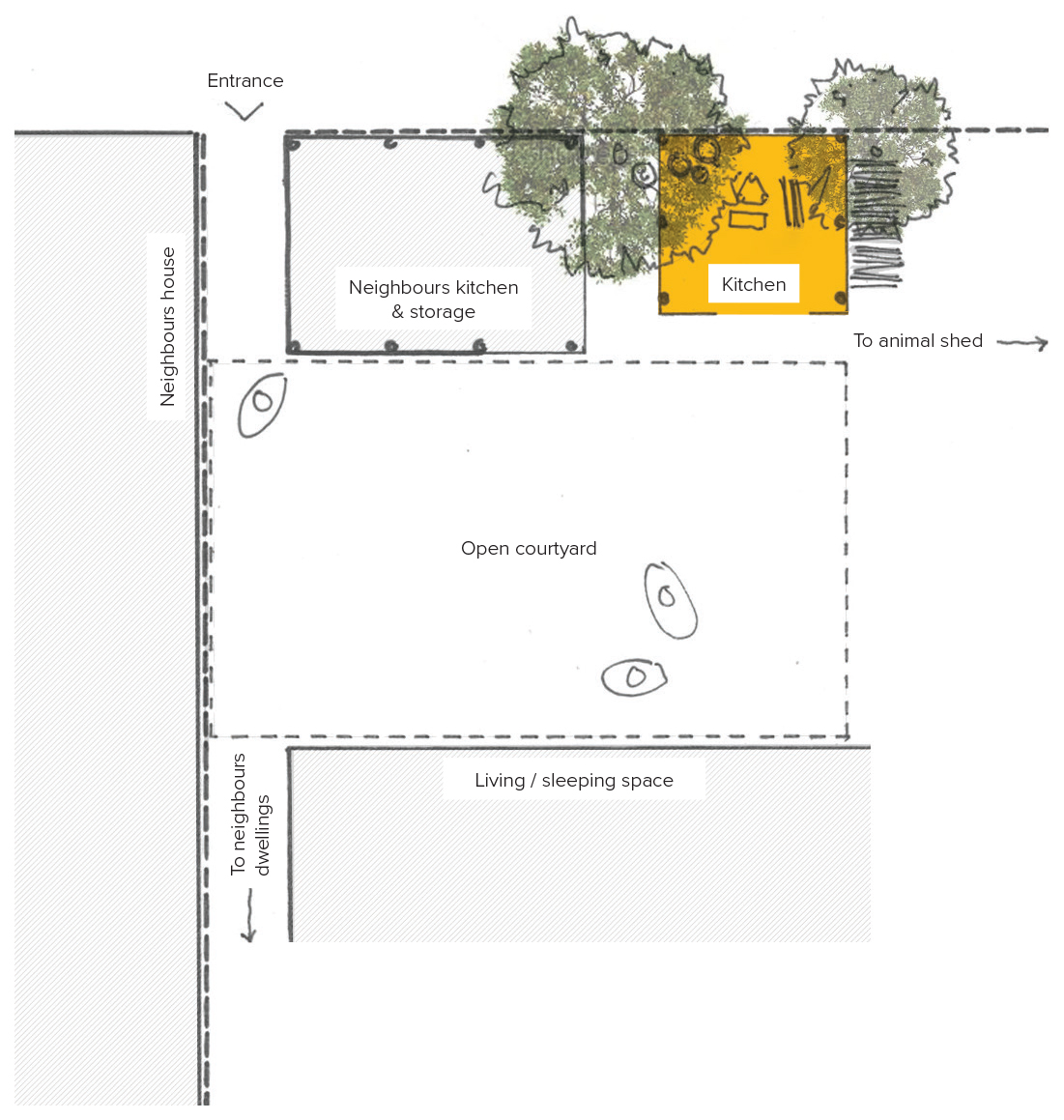Today Rumar is cooking cauliflower and potato mash with rice and greens. She is responsible for preparing and cooking meals for her family of five. Like many women in her village in Dinajpur, Bangladesh, she faces real challenges in the home.
Her kitchen is only 3.4 sqm and is built on a raised earthen plinth which she protects from the driving rain as best she can. Without walls and a leaky roof, things are difficult in the monsoon.
“During rainy season the kitchen floods. The roof needs to be repaired so I cook under an umbrella… I have to make sure water doesn’t get into the stove or the fire goes out.”
Rumar makes and repairs her stove using a mix of earth and water. She worries about the open flames when her children are near and shows us burns she’s suffered from cooking this way. Her kitchen has flooded numerous times and burnt to the ground a few years ago due to a fire that escalated. There is no electricity or piped water supply.
“We share a tubewell with our neighbours, so I carry the pots and pans outside to clean them after we eat. I store them in the house, otherwise the rats and dogs would come.”
Her family can afford to buy a small amount of jute sticks and wood to fuel the stove every month, but when this runs out Rumar gathers leaves and twigs to keep it going. This wet material produces a lot of smoke. She cooks on a small stool, at least for now she is not in too much discomfort.
Plan of the homestead
Rumar’s village is in one of the poorest regions of the country. Saving for home improvements is a struggle but she dreams of a better way - a kitchen that is safe and comfortable, a space that doesn’t fill the air with black smoke, a space she would enjoy cooking in.
In rural Bangladesh women spend much of their day in the home and within the kitchen, yet they are often not involved in its design. Their perspective is crucial. Kitchens are dark, cramped, unhygienic and poorly ventilated, contributing to chronic and acute health effects including lung cancer and diarrhoeal disease. They are leftover spaces despite the fact they are used from morning till night.
We are working with women like Rumar to co-design solutions that will improve their health and wellbeing. We believe Rumar holds the answers to the challenges she faces.
Help us empower these women to be design leaders in their communities. Donate to Heart of the home.
Author: J Ashbridge





